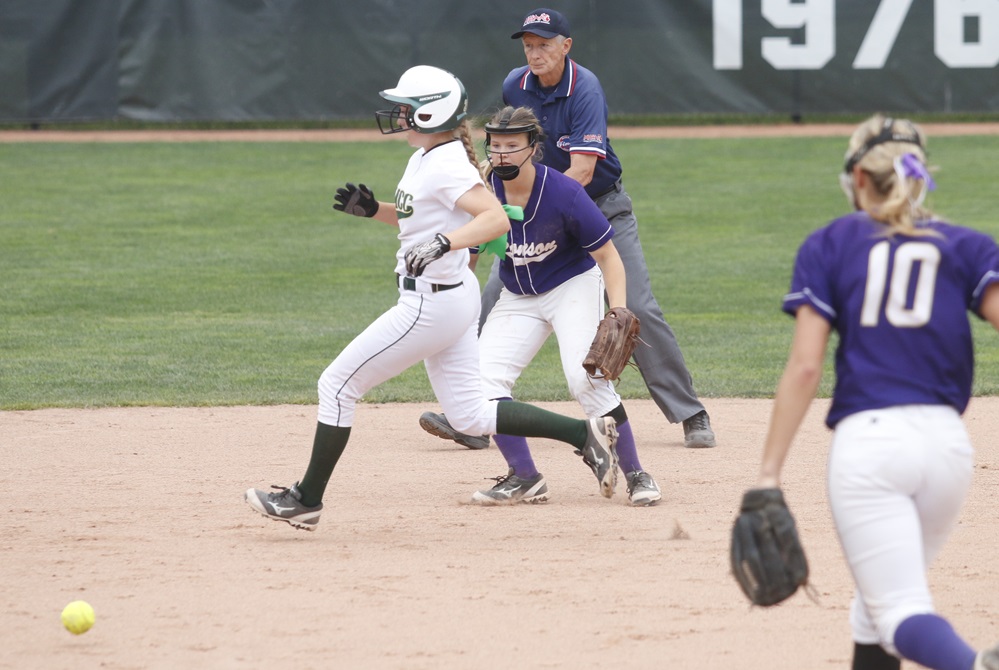
“Who Needs This?”
May 24, 2013
One of the best barometers we have for informing us of the health of Michigan’s economy is to examine the number of registrations to be an MHSAA official. When the economy is poor, registrations trend upward; when the economy is improving, registrations decline.
Well, business must be booming in Michigan! Since the 2007-08 school year we’ve fallen almost 2,000 registrations.
Some of this decline can be explained away by the fact that registrations spiked upward when we allowed some free registrations in volleyball and basketball following the 2007 court-ordered changes in the girls volleyball and basketball seasons. But most of the recent decline – certainly the 1,000 decline of the past two years – is unrelated to discontinuing those promotional efforts; and it’s unrelated to a very reluctant resurgence in Michigan’s economy.
What is at work here now are two newer forces that frustrate efforts to maintain a pool of officials that is adequate to handle all the contests of a broad and deep interscholastic athletic program, and to handle those contests well:
- The first is the rise of social media and “instant criticism.” Spectators not only can critique calls before the official gets home from the game, those spectators can do so during the game. Their biased comments – and photos – can go worldwide before the official has left the venue! Really, who needs this? There have got to be less stressful hobbies.
- The second factor is the increased dependence on assigners. As local school athletic directors’ jobs became larger and more complicated, and as they were often given less time to do those jobs, more have had to turn to local assigners who will hire contest officials for groups of schools in one or more sports. As assigners built their little kingdoms, new officials have found it harder to break in and obtain a rewarding number of assignments. Many officials who have found themselves out of sorts with a local assigner have said, “Really, who needs this?” They find more fulfilling ways to spend their time.
The fact is that school-based sports – educational athletics – needs officials. We need them.
We need more officials and we especially need more young officials. Officials are vital members of the team that is necessary to provide a school-based sports program that actually does what it says it does – and that is to teach life lessons, including fair play and sportsmanship.

Be the Referee: Base Runner Interference
By
Paige Winne
MHSAA Marketing & Social Media Coordinator
April 1, 2025
Be The Referee is a series of short messages designed to help educate people on the rules of different sports, to help them better understand the art of officiating, and to recruit officials.
Below is this week's segment – Base Runner Interference - Listen
Let’s head to the softball diamond today for a “You Make the Call," and how to score the play in the book.
We’ve got a runner on second with one out when the batter hits a grounder in the hole between short and third. The baserunner on second interferes with the shortstop attempting to make a play on the ball.
What’s the call? What happens to both the runner and batter?
The runner on second is out for interference. And the batter is awarded first base. There are now two outs with a runner on first.
In the scorebook, the batter is credited with a fielder’s choice, not a base hit. But if the interference is ruled intentional, both runner and batter are out.
Previous 2024-25 Editions
March 25: Pine Tar Usage - Listen
March 11: Basketball Replay - Listen
March 4: Gymnastics Deduction - Listen
Feb. 25: Competitive Cheer Inversion - Listen
Feb. 18: Ice Hockey Delay of Game - Listen
Feb. 11: Ski Helmets - Listen
Feb. 4: Wrestling In Bounds or Out? - Listen
Jan. 21: Block or Charge? - Listen
Jan. 14: Out of Bounds, In Play - Listen
Jan. 7: Wrestling Scoring - Listen
Dec. 17: Bowling Ball Rules - Listen
Dec. 10: Neck Laceration Protector - Listen
Dec. 3: Basketball Goaltending - Listen
Nov. 26: 11-Player Finals Replay - Listen
Nov. 19: 8-Player vs. 11-Player Football - Listen
Nov. 12: Back Row Setter - Listen
Nov. 5: Football OT - Listen
Oct. 29: Officials Registration - Listen
Oct. 22: Volleyball Serve - Listen
Oct. 15: "You Make the Call" - Soccer Offside - Listen
Oct. 8: Roughing the Passer - Listen
Oct. 1: Abnormal Course Condition - Listen
Sept. 25: Tennis Nets - Listen
Sept. 18: Libero - Listen
Sept. 10: Cross Country Uniforms - Listen
Sept. 3: Soccer Handling - Listen
Aug. 24: Football Holding - Listen

